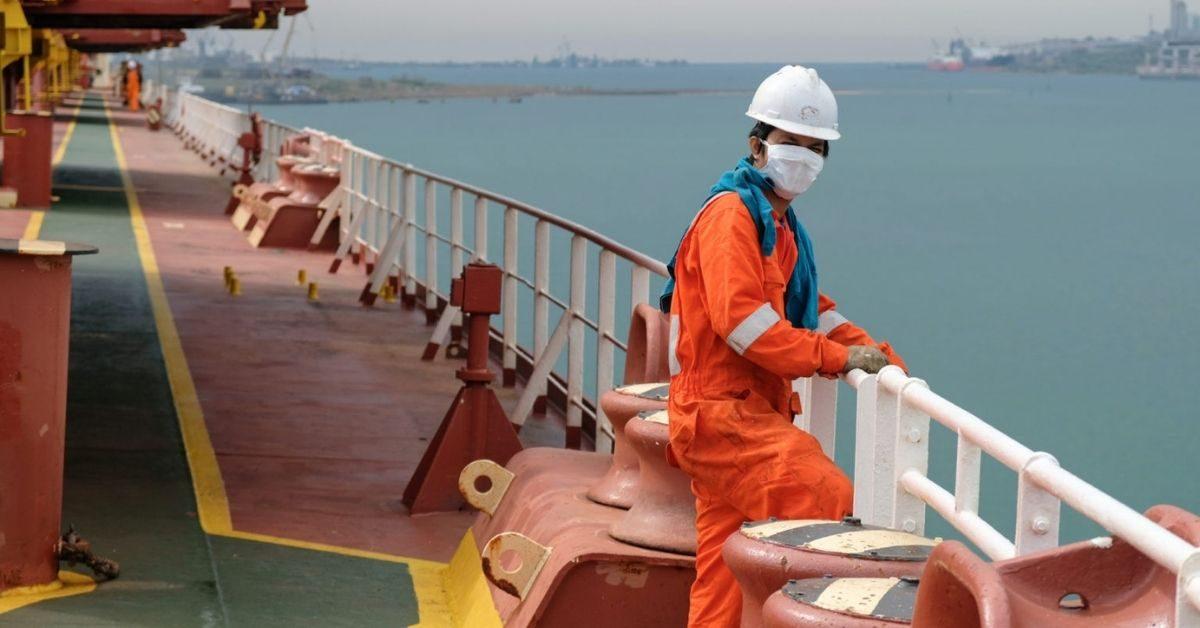Organizations and unions from across the transportation sector are warning that world leaders’ knee-jerk reactions to the Omicron variant of COVID-19 are putting transport workers and the global supply chain at greater risk of collapse.
Cross-border transport workers including seafarers, air crew and drivers must be able to continue to do their jobs, and cross borders without overly restrictive travel rules, to keep already ailing supply chains moving.
The warning comes from international transport organisations and unions representing road, air and sea transport. One week since the World Health Organization (WHO) designated the new Omicron strain of COVID-19 as a “variant of concern”, at least 56 countries have reimposed varying degrees of travel restrictions.
But the International Air Transport Association (IATA), International Chamber of Shipping (ICS), the International Road Transport Union (IRU), and the International Transport Workers’ Federation (ITF) are jointly calling for governments to not reimpose border restrictions that further limit the freedom of movement of international transport workers and learn from the lessons of the last two years.
The transport groups, which represent more than $20 trillion of world trade annually and 65 million global transport workers across the supply chain, are calling for an end to the “rushed and fragmented approach to travel rules by governments” that have already contributed to issues such as the maritime industry’s crew change crisis.
“Now is the time for heads of state to listen to industry leaders and workers, by taking decisive and coordinated action together to ease strain on the supply chain, and support an exhausted global transport workforce during the busy holiday season,” the International Chamber of Shipping said in a statement.
The groups have expressed frustration that governments were reneging on a number of clear steps, such as guaranteeing the free and safe movement of transport workers and prioritizing vaccinations, issued by the groups to world leaders in September.
A crisis meeting with the World Health Organization (WHO) and the International Labour Organization (ILO) to discuss the recommendations, and the impact that travel bans and other restrictions in response to the Omicron variant will have on transport workers and the global supply chain is scheduled for this coming Monday.
“This feels like groundhog day for our transport sectors,” said Guy Platten, Secretary General, International Chamber of Shipping. “There is a real and legitimate fear that unless coordinated action is taken by world leaders we will see a return to the peak of the crew change crisis in 2020 where more than 400,000 seafarers were impacted by unnecessarily harsh travel restrictions. Our transport workers have worked tirelessly for the past two years throughout the pandemic to keep the global supply chain moving, and they are at breaking point. December is traditionally a busy time for seafarers returning home to their families and governments owe them the chance to spend that time with their loved ones.”
Stephen Cotton, General Secretary, ITF, commented: “The same governments that have blocked global vaccine access are now the first to lock down their borders to keep the Omicron variant out. Instead of pursuing a global solution to this pandemic, their decisions further risk supply chain collapse. It’s not only morally reprehensible, it’s economic self-destruction. We need universal access to vaccines now. It’s imperative for all of us to tell governments to stop bowing down to big pharma and pave the way so that every country can produce the vaccines needed to end this pandemic.”
Source : G Captain






